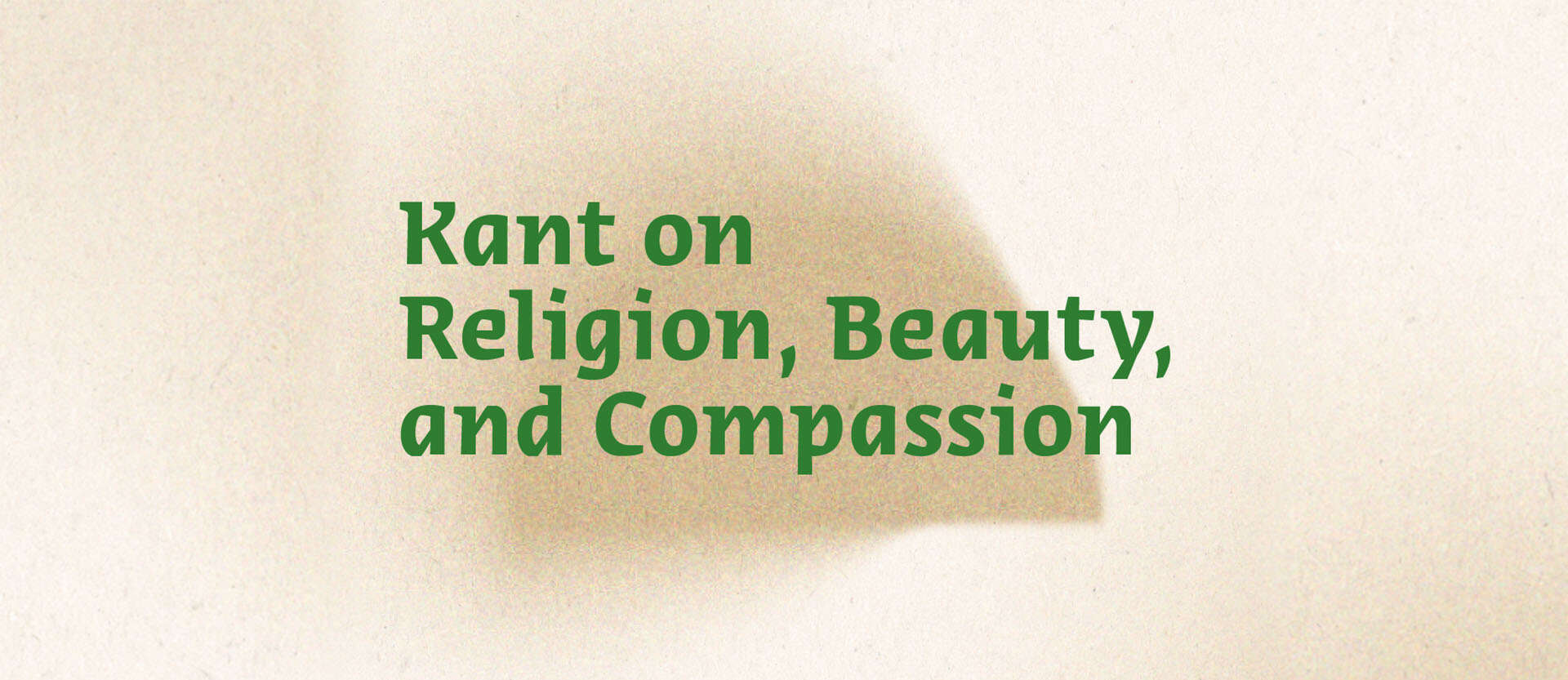Kant on Religion, Beauty, and Compassion | On Campus & Online
Yes We Kant: Lectures in Critical Philosophy and the Legacy of the Enlightenment
First Lecture |
Dr. Moran Godess-Riccitelli, Bar-Ilan University; University of Potsdam
The lecture will deal with Kant’s aesthetic approach to nature and its relevance today: for example, how natural beauty can arouse our wonder and astonishment along with a feeling of moral responsibility for the environment whose beauty we enjoy as a human community. From there we will turn to examining the connection between the aesthetic experience in nature and Kant’s concept of humanity. Our ability to orient ourselves toward nature in the specific manner that Kant proposes enables us to practice our humanity collectively: to develop our moral abilities, set shared goals, and communicate our experiences with openness and orientation to humankind. We will ask whether it is possible to think of such a sense of humanity today, in an era in which we appear divided, lacking in unity and shared goals. And perhaps it is possible to draw inspiration from Kant’s aesthetic approach in order to foster a deeper connection between human beings and between them and nature.
In celebration of Immanuel Kant's 300th birthday
The 14th Series of The Spinoza Center
Produced by Prof. Pini Ifergan, Dr. Dror Yinon
This year, 2024, is the 300th birthday of Immanuel Kant, one of the greatest philosophers of the modern era and of Western philosophy in general. It is hard to find an intellectual discipline or an aspect of modern daily life untouched by Kant’s philosophy: the place of human beings in the world and the rational imperatives that bind them shape their scientific activity, moral consciousness, and aesthetic appreciation of the natural environment and the art they create. Kant, perhaps more than any other philosopher, is identified with the Enlightenment, and alongside it has been subject in recent years to reexamination and sharp criticism of its failures, as its problematic aspects are exposed along with disappointment over its unrealized promises of progress, of a steady march toward the improvement of humankind.
As in many places worldwide, the Spinoza Center at the Van Leer Jerusalem Institute will mark the event with a series of lectures on various aspects of Kant’s philosophy that may enrich thinking about current social and political issues.

